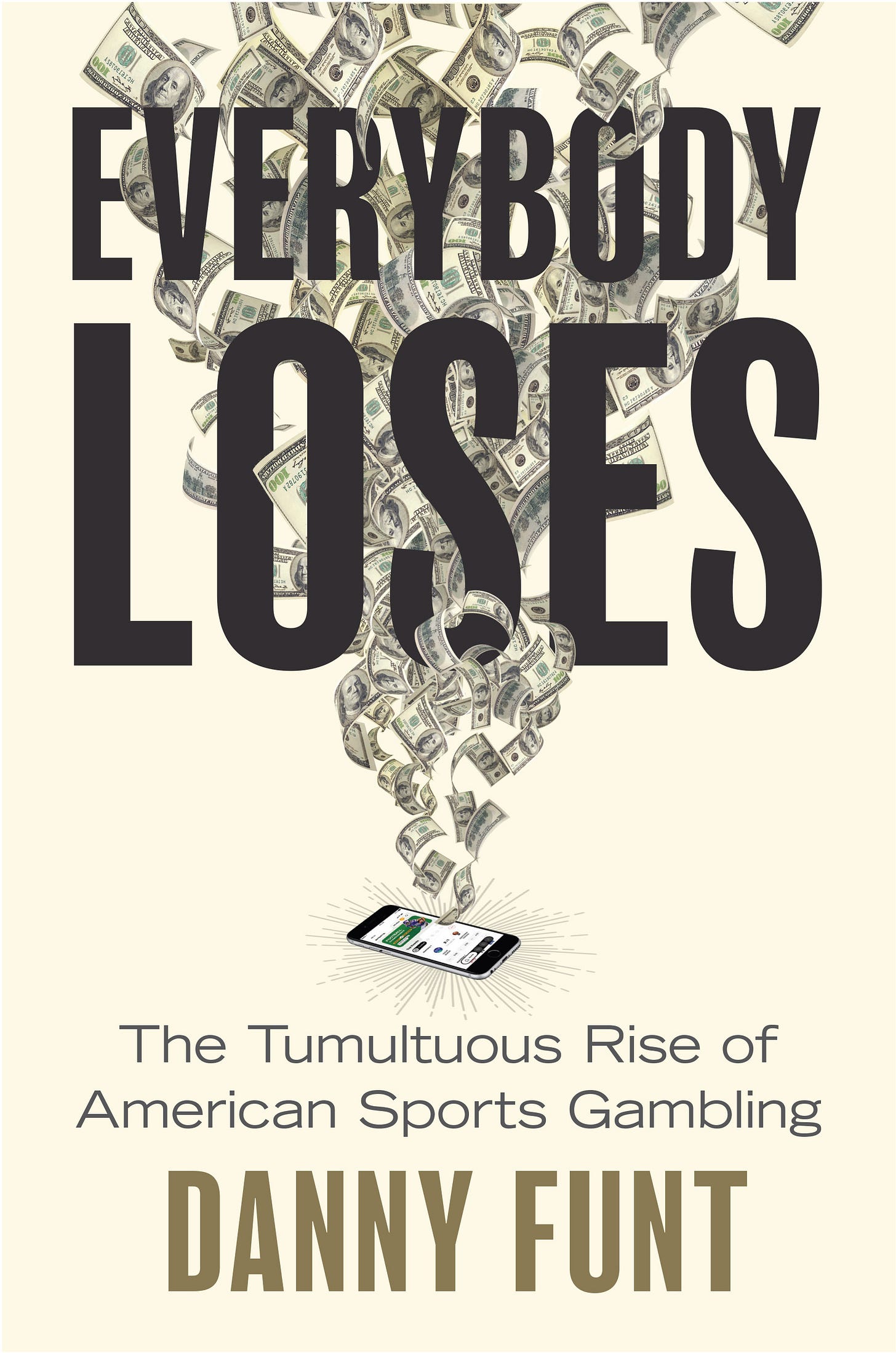EVERYBODY LOSES: on (pre)sale now!
My book on the sports betting boom is officially available for preorder.
MY BOOK, Everybody Loses: The Tumultuous Rise of American Sports Gambling, is available for preorder!
It won’t be published until January 2026, but preorders, I’ve learned, are crucial to a book’s success. It signals interest to retailers, critics, etc., which can lead them to take the book more seriously. I’d be enormously grateful if you’d consider preordering my book through any of the sellers linked on Simon & Schuster’s website.
I’ll have a lot more to share about the contents of the book in the coming months. The inspiration for it was straightforward: I wanted to force the people responsible for the betting boom — and all of us, really — to confront all that’s at stake as billions of dollars are being spent to turn a nation of sports fans into a nation of sports gamblers. That question was mostly brushed aside as politicians, sports leagues, and fifty-plus sportsbooks raced to cash in after the Supreme Court struck down the federal ban on bookmaking outside Nevada.
To be clear, I don’t really mean the question of whether bookmaking should be legal or illegal, although some states, including California and Texas, are still on the fence. Often, we get stuck debating that binary, when at this point it would be more productive to evaluate how most of the country has gone about legalizing sports betting: unrelenting ads that misrepresent the chances of winning, misleading promotions used to seduce new customers, unbelievable perks to egg on the biggest losers, and on, and on.
Everybody Loses reflects what I found after interviewing more than 300 people: sportsbook employees, athletes, agents, league officials, psychologists, scholars, lawmakers, customer-safety advocates, sports journalists, professional gamblers, casual gamblers, and many others. (Meeting all those people put about 4,000 miles on our Honda CRV.)
By “Everybody Loses,” I don’t just mean money. I’m also concerned about integrity, credibility, safety, independence, trust — all of which are endangered by making it so easy to bet on sports 24/7.
A former sportsbook executive captured this succinctly. When I asked what it’s like being an exec in this fast-growing industry, he replied, “You can make good money, but you don’t feel good about it, that’s for sure.”
I really believe in this book and the importance of the conversation it could provoke, so please bear with me — this won’t be the last time I’ll be sending that preorder link.
IN THE LAST EDITION of this newsletter I mentioned that I’d be sharing some kooky historical factoids that didn’t make it into the book. For that post, I wrote about how people used to bet on whether someone could catch a baseball dropped from the top of the Washington Monument.
Today’s doesn’t have anything to do with gambling, but I still got a kick out of it. In 1884, The New York Times reprinted a story from Chicago about a trend that was troubling saloon owners: “the baseball drink.”
Back then, the bartender handed patrons a bottle and glass to pour their own drink, assuming they wouldn’t take more than an ounce and a half. Adjusted for inflation, “the baseball drink” cost this place about $15,000. Still, Chicago saloons endured; by the early 1900s the city had more than 8,000 of them.
Smithsonian historian Jon Grinspan once wrote in the Times about the glory days of American saloons. He described some amazing details, like that some establishments had “urination troughs at the foot of the bar, for full-bladdered drinkers to relieve themselves without abandoning their steins or conversations.”
Maybe bars and cafes should install something like that for people engrossed reading Everybody Loses.
Thank you, as always, for subscribing. Wynnie preordered her copy already.







Pre ordered!